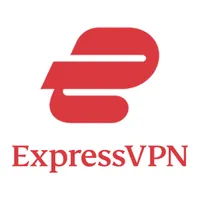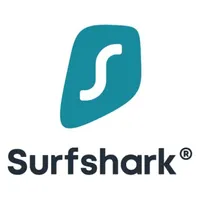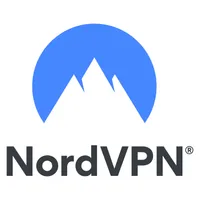The best US VPN in 2025
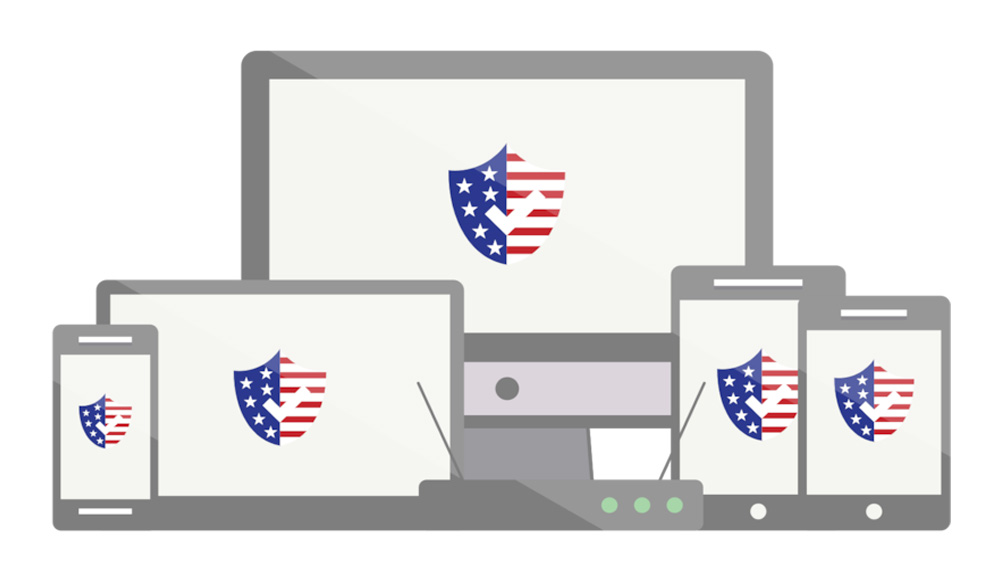
VPNs are booming in the US – and it's easy to see why. Age-verification laws have legitimate privacy concerns, and the risk of data breaches is ever-increasing. It only makes sense to have a quality US-focused VPN to turn to when you need it.
By using one of the best VPNs, you'll be able to encrypt your connection and protect your data from prying eyes, all the while appearing to be located anywhere in the world you want.
We've tested dozens of VPNs to determine how good their coverage within the US is, as well as taking a look at their speeds, how well they support US-specific streaming services (as well as other regional or global streaming platforms), their ease of use, and any extra features to determine the top 5 VPNs for the United States.
I'll be going in-depth into all these VPNs, but if you want a quick answer, check out the top 3 US VPNs below: ExpressVPN, Surfshark and NordVPN.
The 3 best US VPNs at a glance
ExpressVPN – the best US VPN overall
ExpressVPN is the best VPN to choose if you're main priority is to spoof your location within the US. With a server in all 50 states, it offers huge coverage – and it also has servers in 105 countries worldwide. The apps are very simple to use, and it's great for unblocking streaming sites.
Prices start from $3.49 per month ($97.72 upfront) for a two-year plan, which currently includes an exclusive four months free. What's more, there's a 30-day money-back guarantee so you can test it out risk-free.
Surfshark: the best cheap US VPN
If you want a top-quality VPN that won't break the bank, Surfshark is a great choice. It offers servers in 22 US states, delivers great speeds, and is one of the best VPNs we've tested for streaming.
Prices start from $1.99 per month plus tax ($53 plus tax upfront) on the two-year plan, which also includes three months free. Again, there's a 30-day refund period so you can try before you commit.
NordVPN: the best US privacy bundle
While NordVPN doesn't have quite a big a server spread as ExpressVPN or Surfshark – only 16 states are covered – it is our top-rated VPN overall. Speeds are great, privacy is impeccable, and the Plus plan includes the excellent Threat Protection Pro.
Prices start from $3.09 per month ($83.43 plus tax) on the two-year plan, which also includes three free months. As usual, there's a 30-day money-back guarantee so you can make sure that you enjoy using it.
How we chose the best US VPNs
Why you can trust Tom's Guide
Learn more about how we test VPNs ▼
We test and evaluate VPNs in a number of different ways. For US VPNs specifically, first is making sure that the VPN provers have a decent number of servers within the US specifically – it would be no use recommending a VPN that doesn't.
Next is checking that the VPNs can support streaming within the US. We test VPN's unblocking abilities in a couple of different ways – first is by using a semi-automated tool built by our in-house VPN tester, which gives us an overview of whether or not they are able to access streaming platforms.
Then comes the hands-on, real-world testing executed by myself. I've individually tested each VPN on this list to make sure it is able to access US-based streaming platforms Disney+ and Amazon Prime Video on my personal devices – a Dell laptop and an iPhone 11. I also test whether or not they can access other regional and global streaming platforms. This means I've got a good idea of exactly how it feels to use these VPNs during streaming sessions.
To do this, I select a US-based server from my chosen VPN's server list, then attempt to stream content on the streaming platforms. If the VPN was detected, I switched to a different server. If this didn't solve the issues, I classed this as the VPN being unable to unblock the streaming platform.
If a VPN was unable to unblock a streaming platform, I contacted its support to see if there were any fixes available. The level of support I received during this was also factored into that VPN's ranking on this list.
Other factors also went into the placement of the VPN services on this list. One in particular is speed, as high VPN connection speeds mean that your base connection won't be slowed down, keeping your connection stable. So, all of the VPNs were tested on a 1 Gbps line to determine their top speeds.
I've also taken a look at the level of privacy and security these VPNs offer. Not only is this integral in ensuring a VPN performs as expected, but it's important if you're attempting to view content that has been banned in your state. Plus, it's an important factor in your data (and yourself) safe online.
The final factor I've considered is what additional features these VPNs offer, whether this is ad and malware blocking or a free password manager. While these are definitely bonuses rather than must-have features, they do still factor into how appealing a VPN is for certain users. This is especially true for features that are only available to US-based subscribers.
Read more about how we test VPNs for an in-depth look at our testing process.
The best US VPN overall
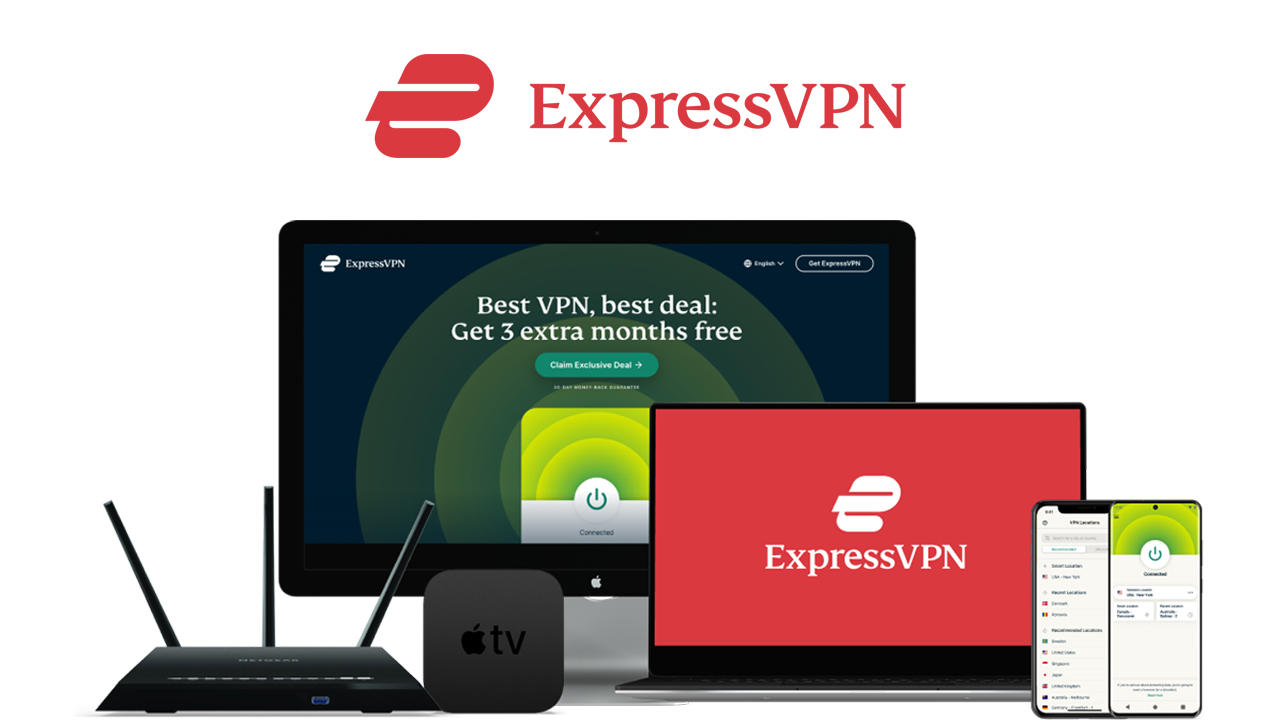
1. ExpressVPN
With servers in every US state and the most intuitive apps we've used, ExpressVPN takes the top spot.
Number of servers: 3,000 | Number of US servers: 50 locations | Peak speed on a 10 Gbps line: 1,617 Mbps | Maximum devices supported: 8 | Streaming services unblocked: Netflix, Amazon Prime Video, Disney+, BBC iPlayer, ITVX, C4, 9Now, 10 Play | 30 day money back guarantee: Yes
What we like:
ExpressVPN recently upgraded its server network to offer a location in every US state – and this expansion has earned it the top spot in this guide. This server diversity, combined with the most straightforward apps we've ever used and very reliable connections, makes it a clear choice for those in the US.
Having a server in every state is rarer than you might think. In fact, only Private Internet Access (PIA) can match ExpressVPN in this regard – and it's a much more expert-oriented product. Overall, ExpressVPN is a better choice for most people, but PIA is cheaper, and is also included further down this list.
When we were testing it, we found that ExpressVPN looks and acts the same no matter what device you're using them on, from Android smartphone to Apple TV. This can't be said for some other VPNs. For example, NordVPN's Fire Stick VPN app is completely different from its other apps, while ExpressVPN's is laid out the same as any other platform.
Our latest speed tests saw ExpressVPN achieve some incredible results when using its proprietary Lightway Turbo encryption protocol, with peak speeds of over 1,600 Mbps. It also delivered very fast OpenVPN speeds at just under 900 Mbps. Be aware, though, that Lightway Turbo is Windows-only – and we'll touch on that in a moment.
In a recent shake-up of its pricing, ExpressVPN is now much more affordable. Previously, there was just a single subscription tier which included tons of extras, but for those just looking for a VPN and nothing else, is was poor value. Now, you can pick and choose which features you know you'll definitely use.
These extras include its ad and tracker blocker Threat Manager, as well as its password manager, Keys. Both are effective, but in our testing we found that NordVPN's Threat Protection Pro performed slightly better.
The added extras get even better for US subscribers, too. You get the aforementioned Threat Manager and password manager, as well as Identity Defender. This identity theft protection suite includes a data removal service, alerts of suspicious activity involving your identity online, ID theft insurance and a credit scanner.
Overall, ExpressVPN is a simple, flexible VPN that's perfectly tailored for US residents seeking better privacy.
What could improve:
While ExpressVPN was able to unblock every streaming service I tested it with, it did have some minor issues unblocking streaming services, including ITVX and the Netflix libraries of Japan and Australia. This is a minor quibble, but worth mentioning because NordVPN and Surfshark both sailed through the tests with no hiccups.
ExpressVPN's Lightway Turbo speeds were incredibly impressive. However, if you don't use a Windows device and don't want to use OpenVPN, your connections may not be quite as rapid.
ExpressVPN's performance using its basic Lightway protocol (which is available on all platforms) were a little disappointing at just 359 Mbps on a 10 Gbps line. Of course, if you've got pretty average Wi-Fi at home, this won't be an issue – but ExpressVPN may hold you up if you pay for ultra-fast speeds.
Finally, while ExpressVPN's pricing has definitely improved, rivals Surfshark and Private Internet Access are considerably cheaper at around $2 per month. Whether ExpressVPN's unrivalled simplicity and polish is worth a small premium is up to you.
🔒 Read our in-depth ExpressVPN review for all the details.
Buy ExpressVPN if:
✅ You want an easy-to-use VPN. With a streamlined interface that stays consistent across all apps, ExpressVPN is ideal for VPN newbies and veterans alike.
✅ You want a VPN with extra cybersecurity features. ExpressVPN has a ton of extra features for US subscribers only, including Identity Defender and Threat Manager.
✅ You want a server in every US state. With servers in all 50 US states, ExpressVPN is the perfect choice for avoiding local content restrictions and sport blackouts.
Don't buy ExpressVPN if:
❌ You want a cheap VPN. ExpressVPN is much more affordable than it once was, but there's no hiding from the fact that some other quality VPNs cost less.
❌ You want a VPN you can use on many different devices. ExpressVPN is available across a range of different platforms, but only offers 8 simultaneous connections. If this is too few, go for a VPN with unlimited simultaneous connections like Surfshark or PIA.
The best cheap US VPN
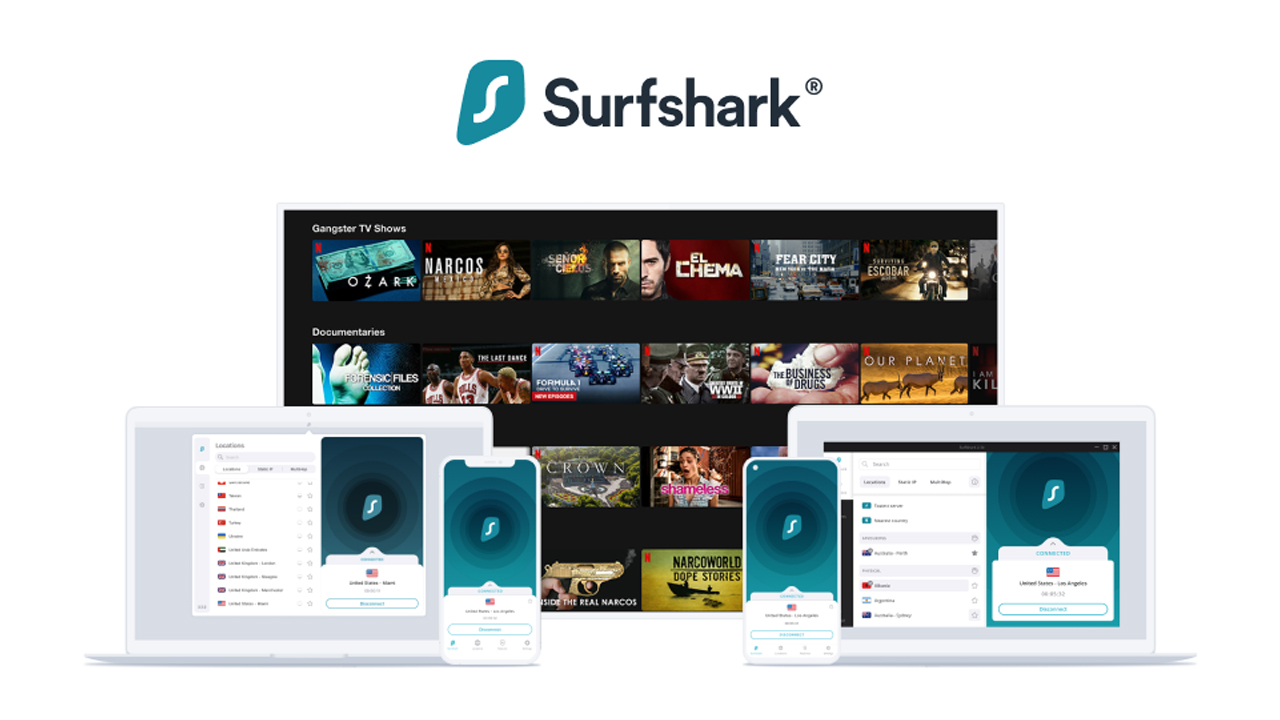
2. Surfshark
Surfshark well outperforms its price tag, and is a perfect budget alternative to ExpressVPN.
Number of servers: 3,200 | Amount of US servers: 600 in 22 locations | Peak speed on a 10 Gbps line: 848 Mbps | Maximum devices supported: Unlimited | Streaming services unblocked: Netflix, Amazon Prime Video, Disney+, BBC iPlayer, ITVX, C4, 9Now, 10 Play | 30 day money back guarantee: Yes
What we like:
With 600 servers in 22 locations across the US, Surfshark has servers in more locations in the US than NordVPN and Proton VPN, but still can't quite match ExpressVPN.
However, the standout reason why you might pick Surfshark over all of these competitors is the sheer value it offers. Priced at $1.99 per month, and unlimited device installs and simultaneous connections on a single plan, there's a reason why why we rank it as the best cheap VPN. However, don't be fooled into thinking it's a second-rate product because of its price.
Surfshark has great speeds, maxing out at around 850 Mbps in our latest round of testing. What's more, even on my (admittedly slow) domestic Wi-Fi, I was able to achieve speeds of 48 Mbps. My connection was smooth and stable – I could barely tell I was using a VPN at all.
Surfshark is one of the best streaming VPNs around, too, unblocking Netflix's US library, Amazon Prime Video and Disney+ with ease. It was also able to unblock Netflix in the UK, Japan, Canada and Australia as well as BBC iPlayer, ITVX, C4, 9Now, 10 Play.
In fact, Surfshark was the only VPN that didn't have any issues during my streaming tests (although admittedly the majority of the issues the other VPNs faced were minor).
Plus, if you want to stream using a multitude of different device, you'll never have to worry about running into a device limit thanks to that unlimited install policy. This means that you can use Surfshark on as many different devices as you want, and can even share it across your household.
What could improve:
While Surfshark does have servers in 22 locations across the US, it only has 600 servers in the US total, which is fewer than NordVPN and Proton VPN. It also has servers in fewer locations than both ExpressVPN and PIA as well.
Surfshark keeps its apps simple, which is definitely a plus for those new to VPNs or who like their VPN apps more streamlined. However, this simplicity also means that it's not as configurable as the likes of Proton VPN or PIA. If you want a US VPN you can get under the hood of, you're better off going with either of these options.
Another flaw of Surfshark's is its price hikes. While its initial price of just under $2 per month for a two-year subscription is undoubtedly great value for money, Just like its stablemate NordVPN, after this period is up, you will be subject to hefty VPN renewal prices.
If you want to stick with Surfshark but avoid the price hikes, you'll need to cancel your account before your subscription ends and re-subscribe.
🔒 Read our in-depth Surfshark review for all the details.
Buy Surfshark if:
✅ You want a super-fast VPN. In our latest round of speed testing, Surfshark had very reliable speeds of around 850 Mbps, and performed very well on slower networks, too.
✅ Streaming is your top priority. Surfshark did not have any issues with streaming, minor or otherwise, in our latest round of testing.
✅ You want a cheap US VPN. With a two-year plan costing just under $2 per month plus tax, Surfshark is the cheapest VPN provider on this list.
Don't buy Surfshark if:
❌ You want a US VPN you can customize. Due to its more streamlined, simple apps, Surfshark does not offer the level of configuration that Proton VPN and PIA do.
❌ You want a VPN with an extensive US server network. With 600 servers in 22 locations across the US, Surfshark's US server network certainly isn't the smallest, but it's not as widespread as ExpressVPN's or PIA's.
The best US VPN with extra privacy features
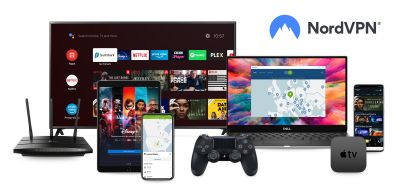
3. NordVPN
NordVPN is our top-rated VPN overall, and despite a relatively small spread of servers in the US, it's still a strong choice.
Number of servers: 8,000+ | Number of US servers: 1,970 in 16 locations | Peak speed on a 10 Gbps line: 901 Mbps | Maximum devices supported: 10 | Streaming services unblocked: Netflix, Amazon Prime Video, Disney+, BBC iPlayer, ITVX, C4, 9Now, 10 Play | 30 day money back guarantee: Yes
What we like:
NordVPN takes the #1 spot in our ranking of the best VPN services, and it's only outdone by ExpressVPN here because it doesn't quite have the range of servers across the US.
There are over 1,900 servers in 16 locations across the US to be exact, and while that doesn't match a server in every state, there's a good selection to choose from.
In our streaming testing, NordVPN was able to unblock US-based streaming services Amazon Prime Video and Disney+, as well as the US catalog of Netflix.
Beyond the US, NordVPN was able to unblock the Canadian, Japanese, Australian and UK libraries of Netflix, in addition to BBC iPlayer, ITVX, All4, 9Now and 10 Play. So, if you want to stream beyond the US, NordVPN has got you covered.
You won't be slowed down during your streaming sessions, either. In our latest round of testing, NordVPN achieved speeds of over 900 Mbps, meaning your connection should be kept stable and you won't deal with buffering. This is much faster than ExpressVPN's basic Lightway speeds, meaning non-Windows users won't be held up.
NordVPN has some handy features beyond streaming, too. It offers a full cybersecurity suite, with malware, ad and tracker blocking from Threat Protection Pro, a cross-platform password manager, a data breach scanner and even 1 TB of encrypted cloud storage.
It also has some handy extras for US-only subscribers, including NordProtect, which comes with dark web monitoring, 1-Bureau credit monitoring, VantageScore 3.0 credit score by TransUnion, credit freeze assistance, identity theft insurance with up to $1m in coverage and cyber extortion insurance with up to $100k in coverage.
All that costs extra, and for most people we'd recommend just upgrading to the Plus plan, which include Threat Protection Pro. The other plans may suit you, but Plus offers the best value.
So, if you're after a US VPN that will keep you safe in all aspects online, NordVPN is a great choice.
What could improve:
While NordVPN's server spread is decent, it's not quite as good as some other providers. Surfshark, ExpressVPN and PIA all have servers in more US locations than NordVPN, and Proton VPN has more servers in the US overall.
This shouldn't impact your use of NordVPN too much, but if you're concerned about certain regional laws and want to avoid them, there's simply not quite as much choice.
NordVPN is also pretty expensive, with its extra cybersecurity features only available as paid add-ons. If you want to use its password manager and Threat Protection Pro, you'll have to upgrade to its Plus plan ($3.99 per month plus tax for a 27 month subscription billed at $107.73 plus tax upfront). As mentioned, for most poeple, this will be the most attractive plan.
If you want these features plus encrypted cloud storage then you'll need to sign up for NordVPN's Complete plan (which is $4.99 per month plus tax for a 27 month subscription, billed at just under $135 upfront).
Finally, if you want the upgraded monitoring and cyber insurance NordProtect offers, you'll need to upgrade to its Prime plan ($6.99 per month plus tax for a 27 month subscription, billed at $188.73 plus tax upfront).
Finally, NordVPN is the worst offender when it comes to auto-renewal price hikes. In short, don't get caught out, and take measures to avoid them. The easiest way is to wait for a great VPN deal to come along, and purchase a new plan with your existing email address. The extra years will be added to your account automatically.
🔒 Read our in-depth NordVPN review for all the details.
Buy NordVPN if:
✅ You want our top-rated VPN overall. NordVPN is our #1 rated VPN overall, and its performance as a US VPN is similarly excellent.
✅ You want a security suite as well as a VPN. NordVPN offers a range of added extras, like tracker, ad and malware blocking, to keep you even safer online.
✅ You want to stream content from across the world. In testing, NordVPN was able to unblock both regional and global streaming sites.
Don't buy NordVPN if:
❌ You're on a tight budget. At just under $3.50 per month plus tax for a two-year subscription, NordVPN's not the cheapest VPN provider. If you're on a strict budget, Surfshark or PIA are better options.
❌ You need a wide range of US servers. NordVPN has the fewest US-based server locations on this page. If this matters you, you're better off going with ExpressVPN or PIA.
Best US VPN for experts
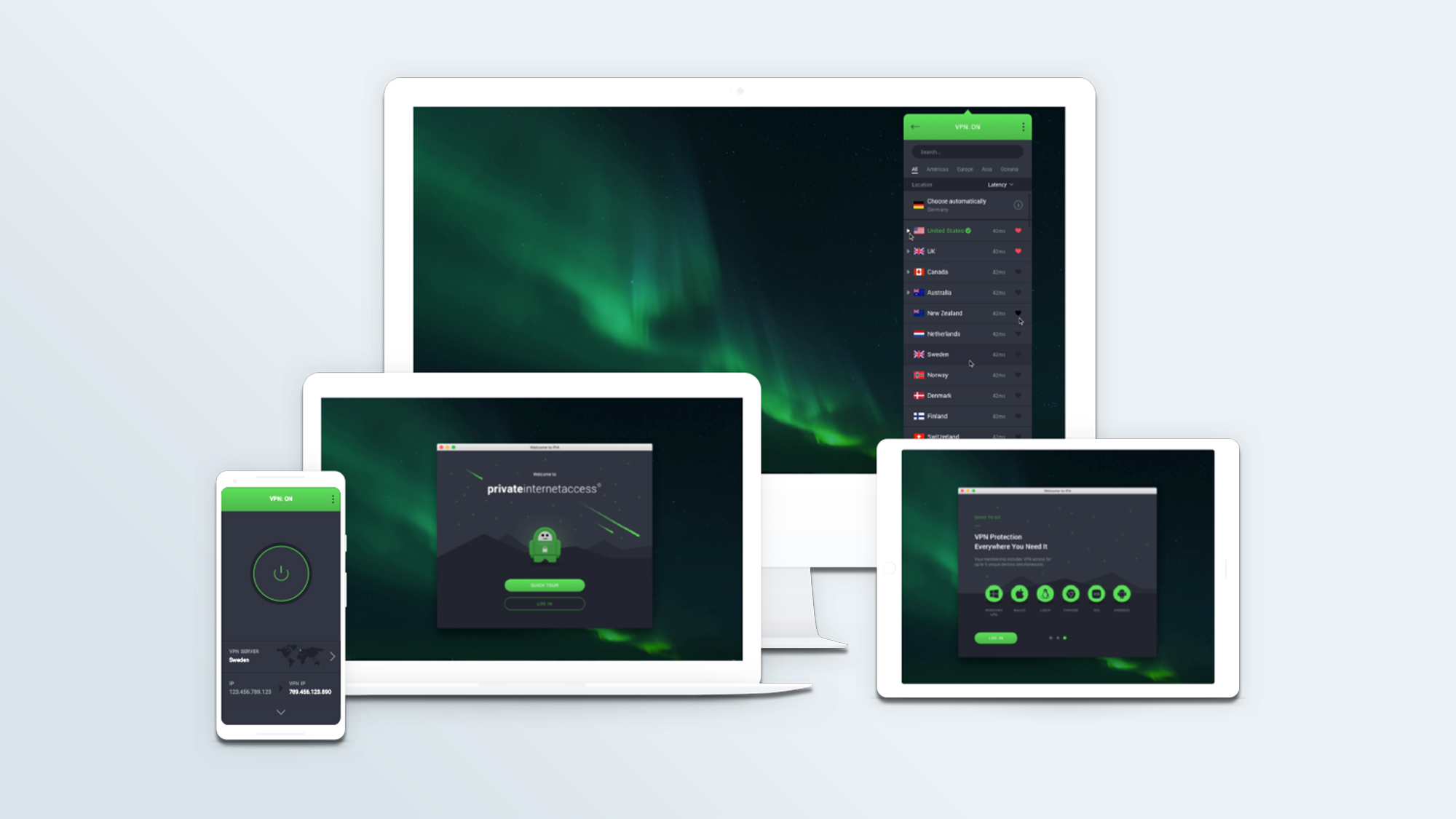
4. Private Internet Access
PIA matches ExpressVPN with servers in every state, but the apps are much better-suited to experts.
Number of servers: 10,000+ | Amount of US servers: 50+ locations | Peak speed on a 10 Gbps line: 510 Mbps | Maximum devices supported: Unlimited | Streaming services unblocked: Netflix, Amazon Prime Video, Disney+, BBC iPlayer, ITVX, C4, 9Now, 10 Play | 30 day money back guarantee: Yes
What we like:
Private Internet Access (PIA) does not officially state how many servers it has, however, it does have at least 50 servers within the US. This is only matched by ExpressVPN.
This means that you can watch state-specific content, like sports games, no matter where you are just by selecting a server in your state of choice.
If you want a US VPN to stay completely anonymous online, then you'll be pleased to know that PIA is one of the most private VPNs on the market. Despite being based in the US and therefore being subject to the data privacy laws from the 5, 9 and 14 Eyes Alliances, PIA has a strict no-logs policy.
It doesn't require you to take its word for it, either. In fact, PIA publishes quarterly Transparency Reports, showing just how many times user data has been requested from them, and just how many times it's refused to share it. After all, you can't share what you don't have.
The dedication to user privacy does not stop here, however. PIA allows you to even keep the acquisition of your VPN private by allowing you to pay with cryptocurrency.
Speaking of payment, you may think the amount of servers and dedication to privacy comes with a pretty high cost. However, PIA is one of the cheapest VPNs on this list, with prices starting at under $2.50 per month for a two-year subscription.
What could improve:
One of the reasons PIA is rivaling ExpressVPN at the top of this page is down to the complexity of its apps. If you're an expert, you'll love all the tweaks you'll be able to make and advanced features like port forwarding. For the vast majority, though, PIA is just too techy. If you want to plug and play, go with ExpressVPN.
Another of Private Internet Access' drawbacks is that during my streaming tests, I ran into a few issues. For example, during this round of testing for US-specific streaming platforms was only able to access Amazon Prime Video on PIA's "US West Streaming Optimized server."
I also experienced similar issues with other streaming services during my testing, including being unable to access Uk site All4, and having issues unblocking Netflix's Australian catalog, too.
In other streaming tests, I was unable to unblock 10Play one day, but when I checked the next day with the aim of testing out the fixes PIA's support sent to me, I could access it. So, access to streaming platforms may very on the day.
Other minor issues with PIA include its speed, as it's not the fastest VPN. In our hands-on tests, it clocked in at 510 Mbps on WireGuard. With this being said, you only need speeds of 25 Mbps to stream video in 4K, so these speeds should be more than fast enough, even more heavy-bandwidth activities.
🔒 Read our in-depth Private Internet Access review for all the details.
Buy Private Internet Access if:
✅ You want a US VPN with servers in every state. PIA has servers in every single state across the US, allowing you to watch state-specific content, no matter where you are.
✅ You want a super-private US VPN. With quarterly Transparency Reports and the option to pay in cryptocurrency, PIA ensures your VPN use will stay completely anonymous.
✅ You want a cheap US VPN. With prices starting at under $2.50 per month for a two-year subscription, PIA is one of the cheapest VPNs on this list.
Don't buy Private Internet Access if:
❌ Streaming is your top priority. While it was able to unblock most streaming services, I did frequently run into issues when testing PIA's ability to access streaming sites.
❌ You want a simple VPN. PIA's apps lack the polish of ExpressVPN, and could be tricky to navigate for beginners.
The most secure US VPN
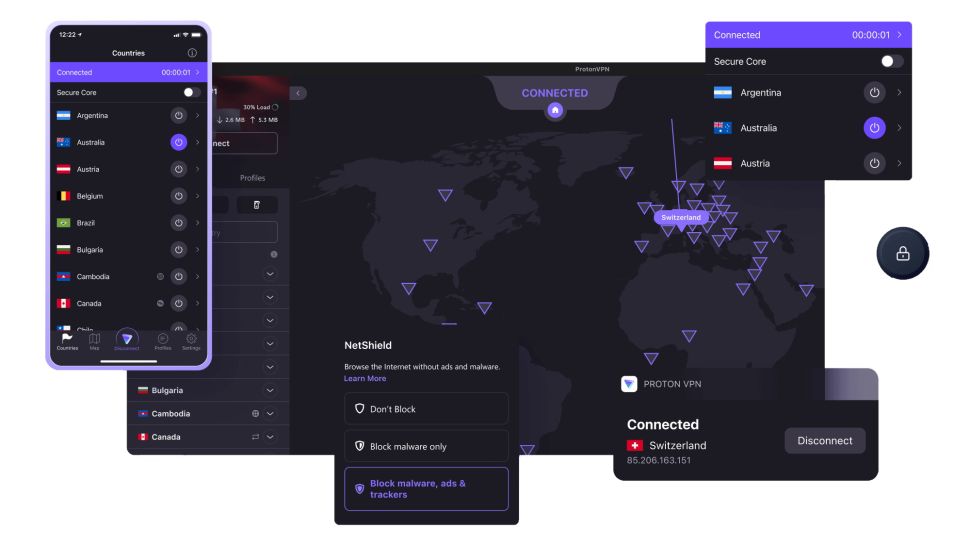
5. Proton VPN
Proton VPN is a trusted name in digital privacy, but it's also excellent for unblocking streaming sites.
Number of servers: 15,000+ | Amount of US servers: 4,200+ servers in 17 locations | Peak speed on a 10 Gbps line: 1,198 Mbps | Maximum devices supported: 10 | Streaming services unblocked: Netflix, Amazon Prime Video, Disney+, BBC iPlayer, ITVX, C4, 9Now, 10 Play | 30 day money back guarantee: Yes
What we like:
With over 4,200 servers in 17 locations across the US, including 4 Secure Core servers, Proton VPN has got you decently covered.
As one of the most secure VPNs, Proton VPN is dedicated to ensuring its users data stays private. Secure Core is excellent for US VPN users who want their VPN use to go under the radar, as it routes your traffic first through a server in a country selected specifically for its strong privacy laws (e.g. Iceland, Switzerland or Sweden), then onto a server in your chosen country. This helps protect you against VPN network attacks and further increase your privacy.
Proton VPN has also recently been named the fastest VPN we've tested, thanks to its peak speeds of almost 1,200 Mbps that stays consistent across different platforms.
On top of this, Proton VPN is one of the best Netflix VPNs, too, accessing the catalogs for the US, UK, Japan, Canada and Australia. It doesn't stop here, however, as Proton VPN was able to access Amazon Prime, Disney +, ITVX, All4, 9Now and 10 Play during my streaming tests.
Plus, its handy Profiles feature means you can get the perfect server setup saved and ready to connect in just a few clicks, so you can stream your favourite content no matter where you are.
Finally, thanks to recent redesign of its Windows, Android and iOS apps, Proton VPN is easier to use than ever. I'd definitely recommend it to anyone looking for one of the best iPhone VPNs – I used Proton VPN's previous UI for four weeks for my Proton VPN review so I know first-hand just how much difference the redesign makes.
The redesign even took some of my previous irks into account, switching its functional server map for an aesthetic one, and re-locating its "Disconnect" button to a widget rather than the center of the screen (where you usually find the "home" button in other iOS apps).
What could improve:
One of the main downsides to Proton VPN is its price. At just over $3.50 per month for a two-year subscription it's one of the more expensive VPNs on this list.
However, it does include the same security features on all of its plans, including its malware, ads and tracker blocker, Netshield.
Additionally, while Proton VPN does have one of the best free VPNs, you may find it limited if you're planning to use it as a free US VPN.
First off is the fact that while you do have access to a server in the USA on Proton VPN Free (one of the five server locations it offers), your server is randomly allocated when you connect, meaning you won't be able to guarantee that you'll connect to it. Of course, you can always disconnect and reconnect the VPN until you end up in the US, but this is a pretty frustrating endeavour.
Secondly is the fact that Proton VPN Free does not support streaming at all. If you're looking a for a VPN simply to encrypt your data while online, then this likely won't bother you too much. However, if you want a free VPN you can use for streaming, check out Privado VPN Free.
🔒 Read our in-depth Proton VPN review for all the details.
Buy Proton VPN if:
✅ You want a customizable US VPN. With Proton VPN's 'Profiles' feature, you can pick the exact location, server and encryption protocol you want for your connection.
✅ You'll mostly use your VPN on iOS. Thanks to its redesign, Proton VPN is a great choice for iPhone users.
✅ You need a wide server spread. With over 4,200 servers in 17 locations across the US, you shouldn't struggle to find a server to connect to.
Don't buy Proton VPN if:
❌ You want a cheap VPN. At just over $3.50 per month for a two-year subscription, Proton VPN is more expensive than Surfshark, PIA and NordVPN.
❌ You want a free US VPN you can use for streaming. Proton VPN Free is a pretty good free VPN, but it does not support streaming.
Are VPNs legal in the US?
The short answer is yes, VPNs are legal in the US. However, if you're using a VPN to stream content that's only licensed in the US, then this may violate the licensing agreement for whatever streaming platform you're using.
This may even lead to your account being terminated (although we've never actually heard of this happening).
Plus, if your VPN use is detected, this will disrupt your streaming plans. For example, Netflix will only show you TV shows or movies that it has a global license for (e.g. Stranger Things), while Amazon Prime Video will simply not play any content if your VPN use is detected.
Which VPN is strongest for the US?
This is a question with a couple of different answers, so bear with me.
In terms of server spread alone, ExpressVPN and PIA beat out the rest of the competition. They have servers in every single state in the US, giving the best possible spread.
Out of the two, ExpressVPN offers a more user-friendly approach.
If you want the best cheap US VPN, then go for Surfshark. At just under $2 per month plus tax for a two-year subscription, you might think that it skimps on performance, but Surfshark is not only the fastest VPN we've tested, but one of the best streaming VPNs, too.
Can I use a free US VPN?
Have you ever hear the phrase "there's no such thing as a free lunch"? Well, the same goes for free VPNs.
Free VPNs are limited because they're often a subsidized version of a premium VPN. This means, that they have smaller server spreads, data limits and may even not have some of the security features offered by their paid-for counterparts.
For example, Privado VPN Free and Windscribe Free are two of the few free VPNs that support streaming. The downside? They both come with a 10GB data limit that will quickly get used up if you do use it for streaming.
On the other hand, there's Proton VPN Free, which offers unlimited data for users. The catch? It doesn't support streaming at all.
There's also more nefarious free VPNs, which get money by collecting and selling your data to thrid parties, or the truly devious ones which are actually fronts for info-stealing malware, and can't encrypt your data online at all.
Overall, while there are some free VPNs with servers within the US, they are all limited in some way. If you don't want to be held back by your VPN, going for a premium one is the best bet.
You don't even need to shell out for one, either – PIA is just $2.19 per month for its two-year plan, and it has a server in every US state.
How do I change my VPN to the US?
While appearing to be in one place and actually being in another may seem like a magic trick, it's actually very simple.
Simply navigate to your chosen VPN's server list, and either search for or scroll down to a server based in the US. Click to connect to it, and viola! You'll now be virtually within the Land of the Brave.
Proton VPN goes one step further, however, with its Profiles feature. With this, you can select the exact location, server and encryption protocol you want to use, then even name and colour-code it.
This means that, once you have found your ideal US VPN settings, you can save them and connect to them in a matter of clicks.
How does a VPN work for the US?
With age verification laws popping up – and the associated privacy concerns – many people are looking for ways to protect themselves better online.
By using a VPN, you can spoof your location either to another state, or to another country entirely.
Another great use for VPNs is watching region-specific content, whether this is on streaming services unavailable in the US, or for catching up with TV shows or sports games while travelling away from home.
How to choose the right US VPN
The first thing to consider when choosing a US VPN is whether or not it has servers where you want them. This is a key reason why ExpressVPN has topped this list – it has servers in every state.
The next thing to consider is what you specifically want to use it for. If you're after the best gaming VPN to reduce lag and ping, or the best streaming VPN service to catch up with movies and TV shows from home when you're away, then decent speeds and streaming support is paramount.
If you want a VPN for online anonymity and privacy, then looking at what extra security features the VPN offers (for example, obfuscated servers or anonymous payment options) will be important to you.
Finally, price may be a big factor for you. If you want the best value VPN which offers a full cybersecurity suite as well as a VPN subscription, NordVPN, ExpressVPN or Proton VPN may be the right choice for you. If you just want a basic VPN that won't break the bank, then consider signing up for Surfshark or PIA.
The experts that test VPNs at Tom's Guide

Olivia joined Tom's Guide in October 2023, and is currently VPN Commissioning Editor. She regularly uses VPNs to make sure they deliver what they promise, and specializes in testing VPNs with streaming sites.
For this review, Olivia did all the research on the VPN providers listed and tested their ability to stream US-specific content to bring you the most up-to-date information.

Mo has written about VPNs for Tom's Guide, day-in, day-out, for five years. He's an expert when it comes to what makes a VPN truly usable, and loves it when a VPN makes staying safe online as easy as possible. He is also a contributor to TechRadar, T3, and What Hi-Fi?.
We test and review VPN services in the context of legal recreational uses. For example: 1. Accessing a service from another country (subject to the terms and conditions of that service). 2. Protecting your online security and strengthening your online privacy when abroad. We do not support or condone the illegal or malicious use of VPN services. Consuming pirated content that is paid-for is neither endorsed nor approved by Future Publishing.
Get instant access to breaking news, the hottest reviews, great deals and helpful tips.

Olivia joined Tom's Guide in October 2023 as part of the core Tech Software team, and is currently VPN Commissioning Editor. She regularly uses VPNs to make sure they deliver what they promise, and specializes in testing VPNs with streaming sites.
- Mo Harber-LamondVPN Editor
